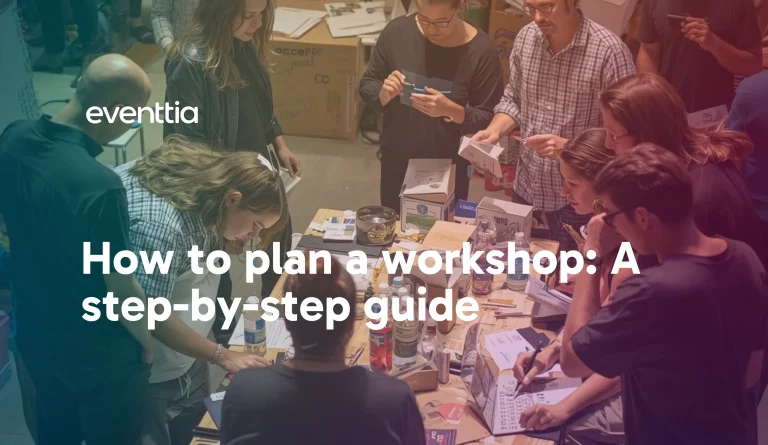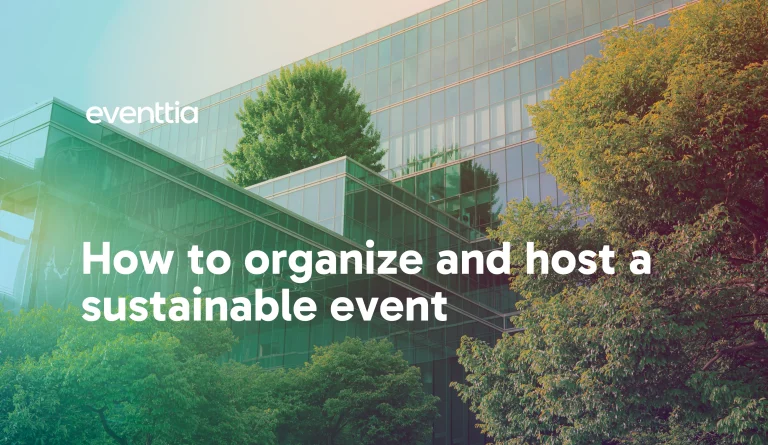Too many event planners believe that planning and running successful networking events require rivers of alcohol, tasty canapes, and icebreaker games. It seems like the “standard protocol” of designing networking events or sessions demands no effort. Just provide your attendees the occasion and the space to network, and they’ll just go with the flow, right?
If you truly believe that, then it’s no wonder why your networking events fail to generate a real pool of opportunities.
The truth is that during most networking events, attendees can’t find the right people to connect with, resulting in many stressful or awkward situations and lost of time and money attending events that bring no value to their businesses, projects, or careers.
Subsequently, this negatively affects your image as an event professional. A failed networking experience means a failed event.
Most probably, you don’t want this to happen.
You want to plan successful networking events, add incredible value to your attendees, and help them build meaningful contacts that will boost their professional life.
How can you do it?
Planning and running successful networking events is more about following a well-designed system than “throwing a party.”
When setting up your next networking event or session, you need to take into account a few simple, yet specific steps:
Step 1. Identify your attendees’ networking goals
According to Derek Coburn, the author of Networking Is Not Working, “The most basic problem with traditional networking events is that they are mixing bowls for professionals who are there for different reasons. Everyone there is focused on his or her own personal agenda, whether it’s signing a new client, creating awareness for their business, or connecting with someone in the hopes of developing a mutually beneficial relationship. Everyone is playing a different game, which is why there are usually no clear winners.”
People don’t come to your event just to meet new people and see what will happen. Most of them attend having clear goals. That’s why the key to successful networking events is to know what your attendees are looking for and what they can offer in return.
Step 2. Design a quality control system
The quality of your networking event or session depends on the quality of your guests. How can you be sure that your attendees can offer value if you have no idea who they are? To run successful networking events, you need a quality control system. It’s your responsibility as an event planner to know who’s coming to network, what they can bring to the table, and what can you offer them in exchange.
Step 3. Prepare your attendees before the event
Surprises are not always welcome. Give your attendees instant access to the guest list and provide them a space for initial communication. Encourage your participants to decide whom they want to talk to during the event, and help them properly prepare for the networking session.
Step 4. Set up clear parameters to run successful networking events
The craziest thing is to believe that if you supply your guests with rivers of champagne, they’ll have fun, interact, and generate powerful professional prospects. Don’t forget that talking to strangers may be highly stressful for the attendees, and alcohol won’t change that. Be sure to set up a psychologically safe and comfortable environment by guiding your guests through the entire networking process.
Step 5. Allow your guests to build meaningful prospects
Your number one responsibility is to connect the people who truly need to be connected. Don’t settle for senseless interactions between participants who can’t add value to each other. Before the event, provide your attendees with the guest list of those who are planning to attend and let them choose (and schedule meetings) with whom they want to interact. Give them the guarantee that they can reach certain people and have a meaningful conversation with them.
Call to action
Planning and running successful networking events is easier than you think. Forget about traditional networking events or session setups, and follow a well-designed system that will help you add incredible value to your attendees’ professional life.
Discover how Eventtia helps world-leading brands digitize and scale their events
Learn moreShare



